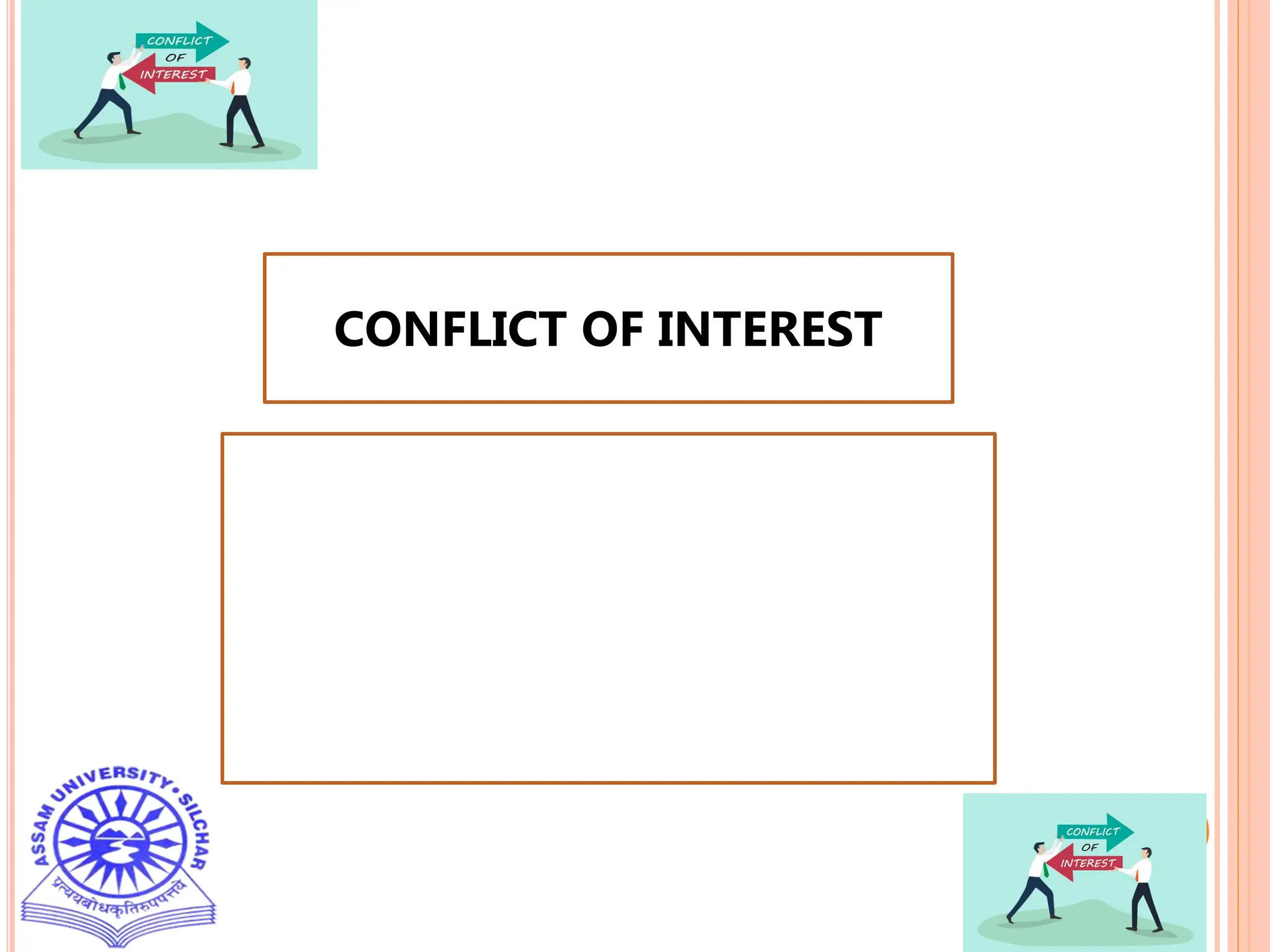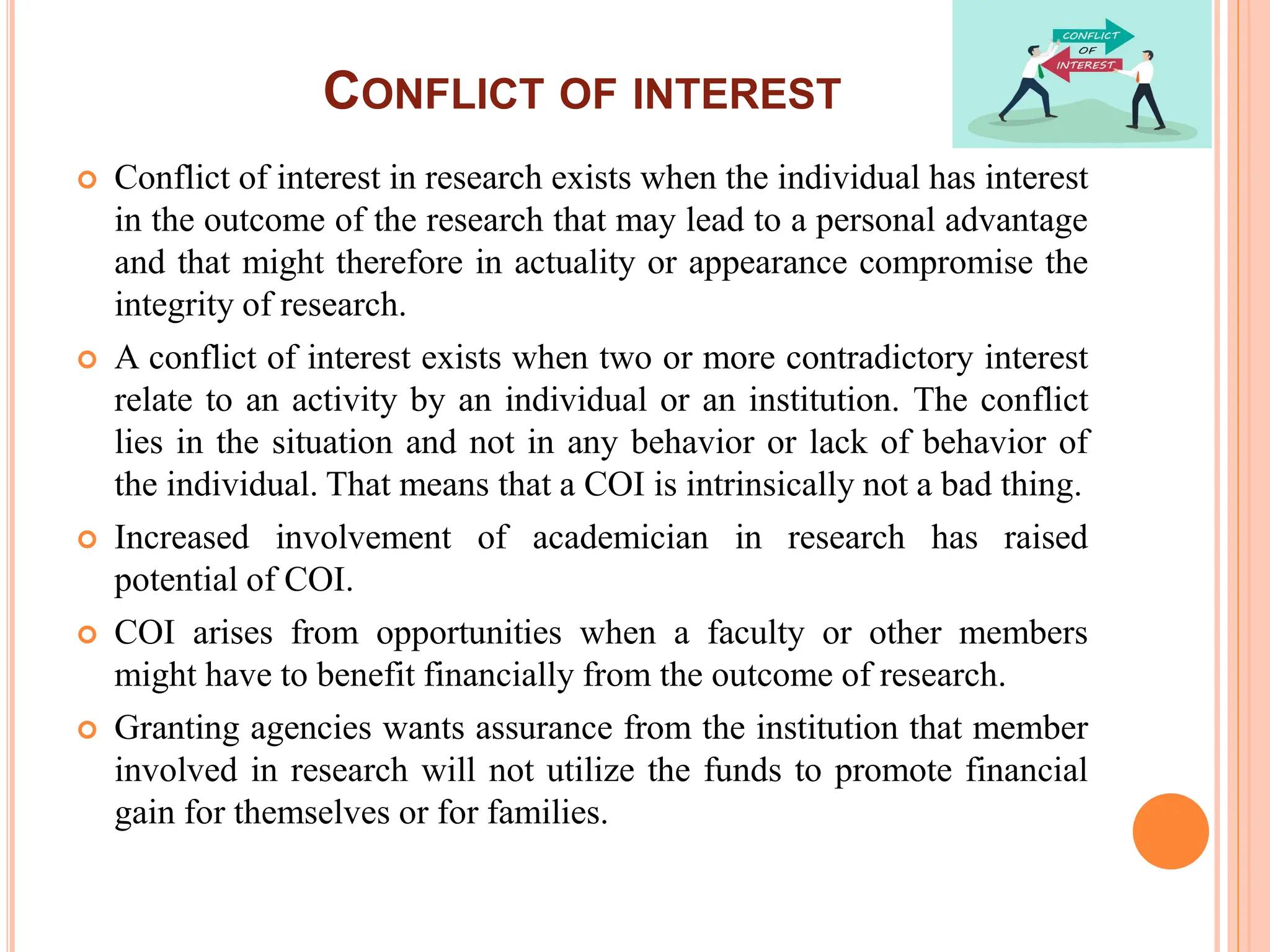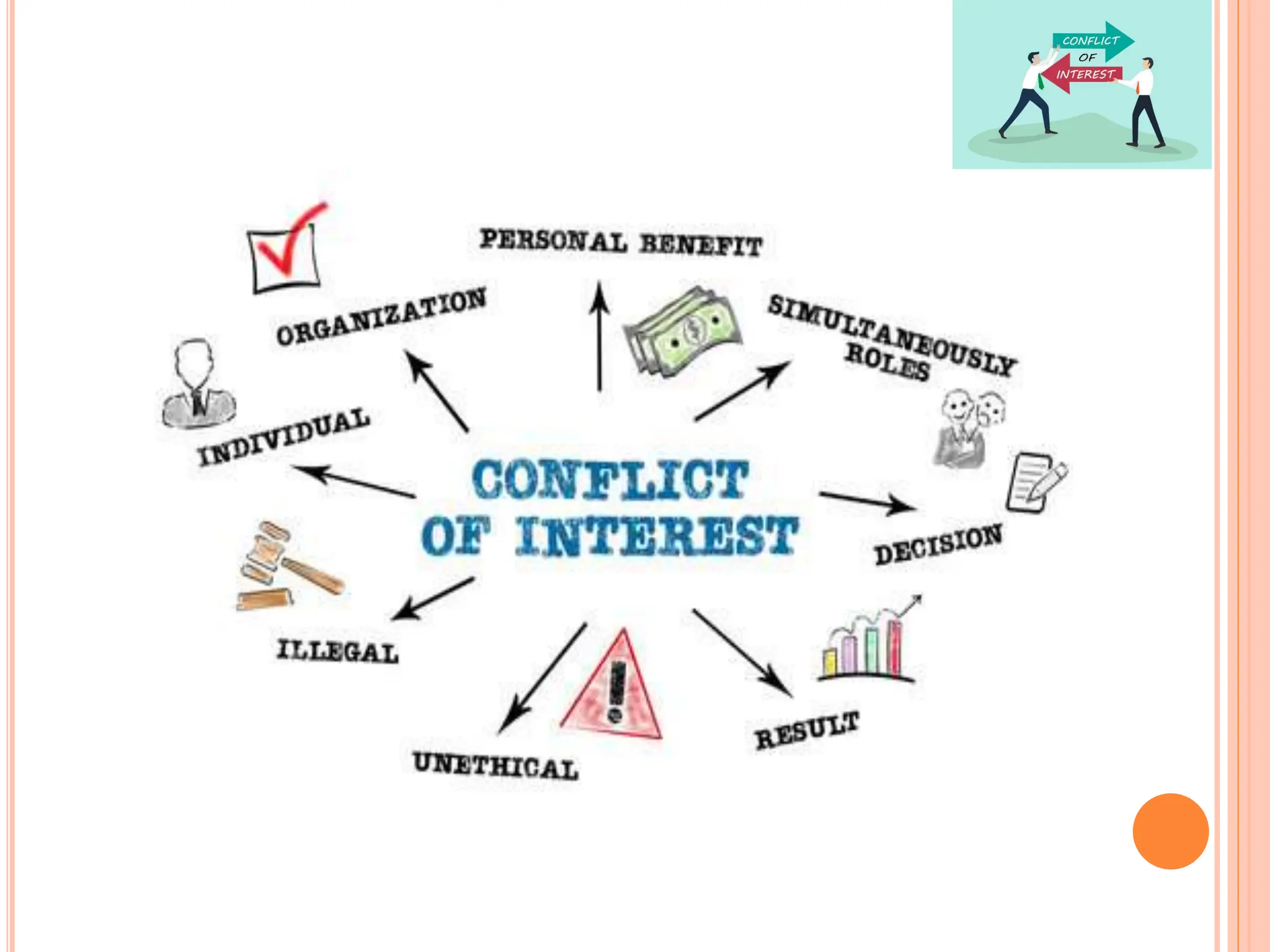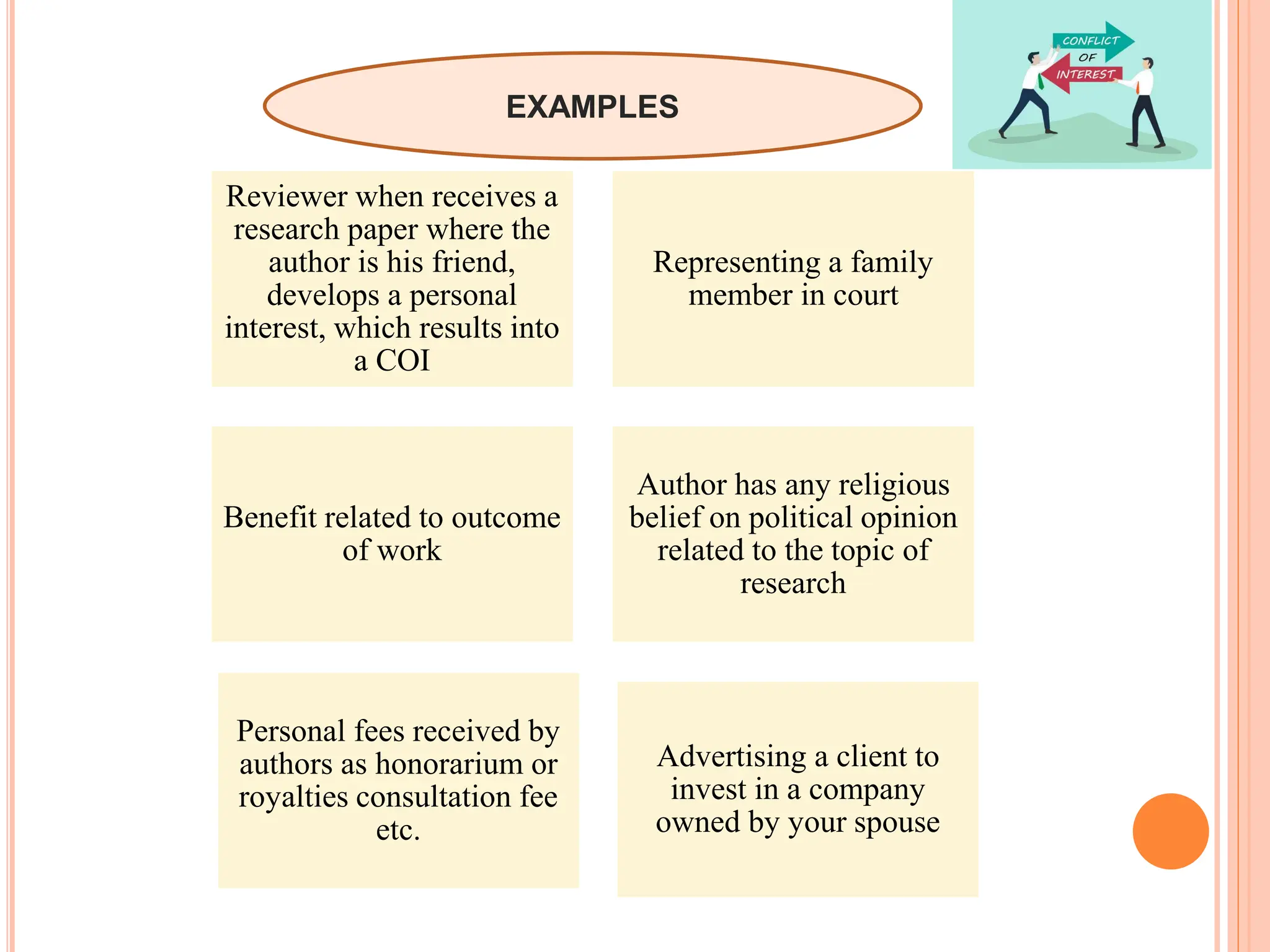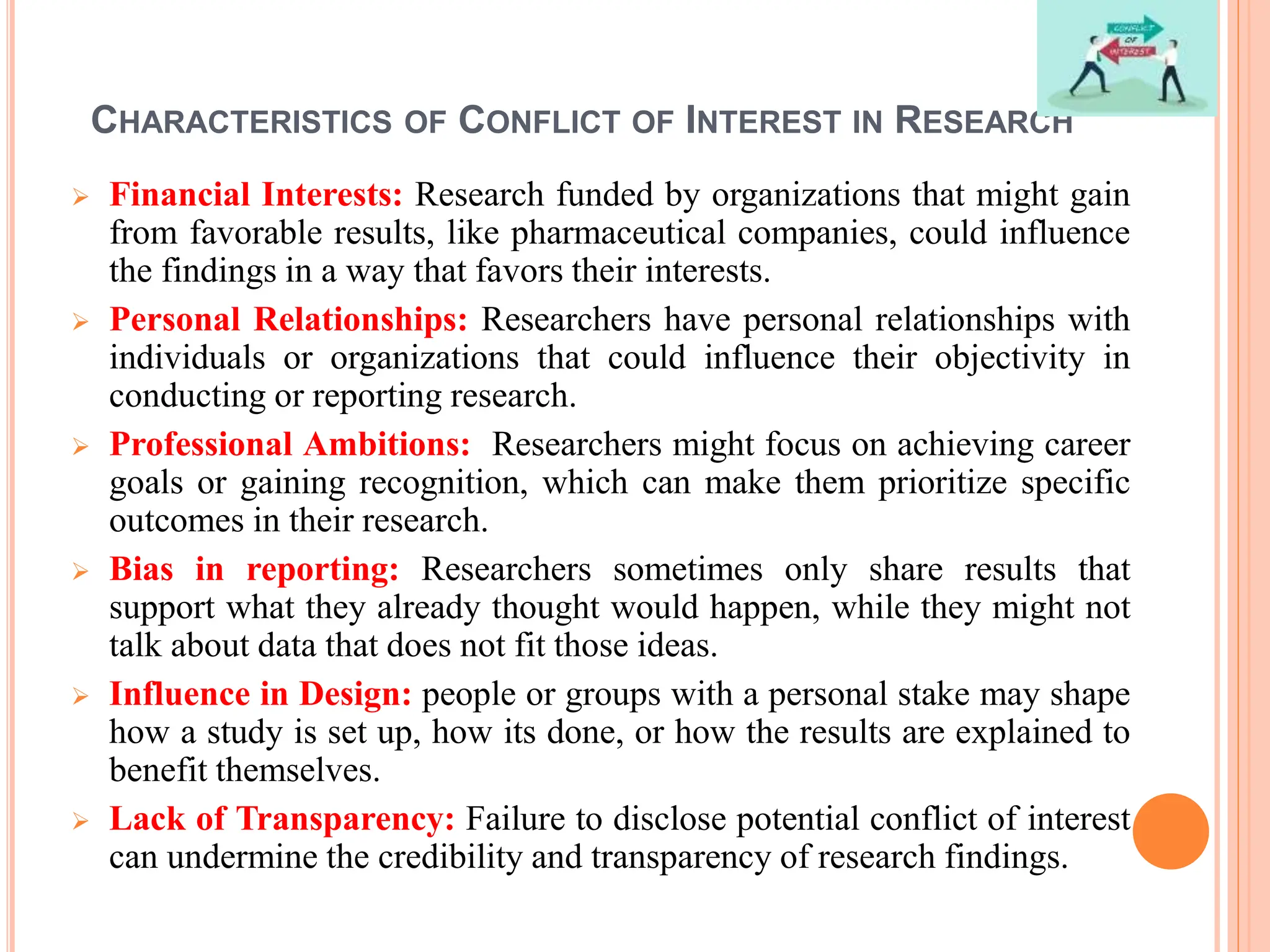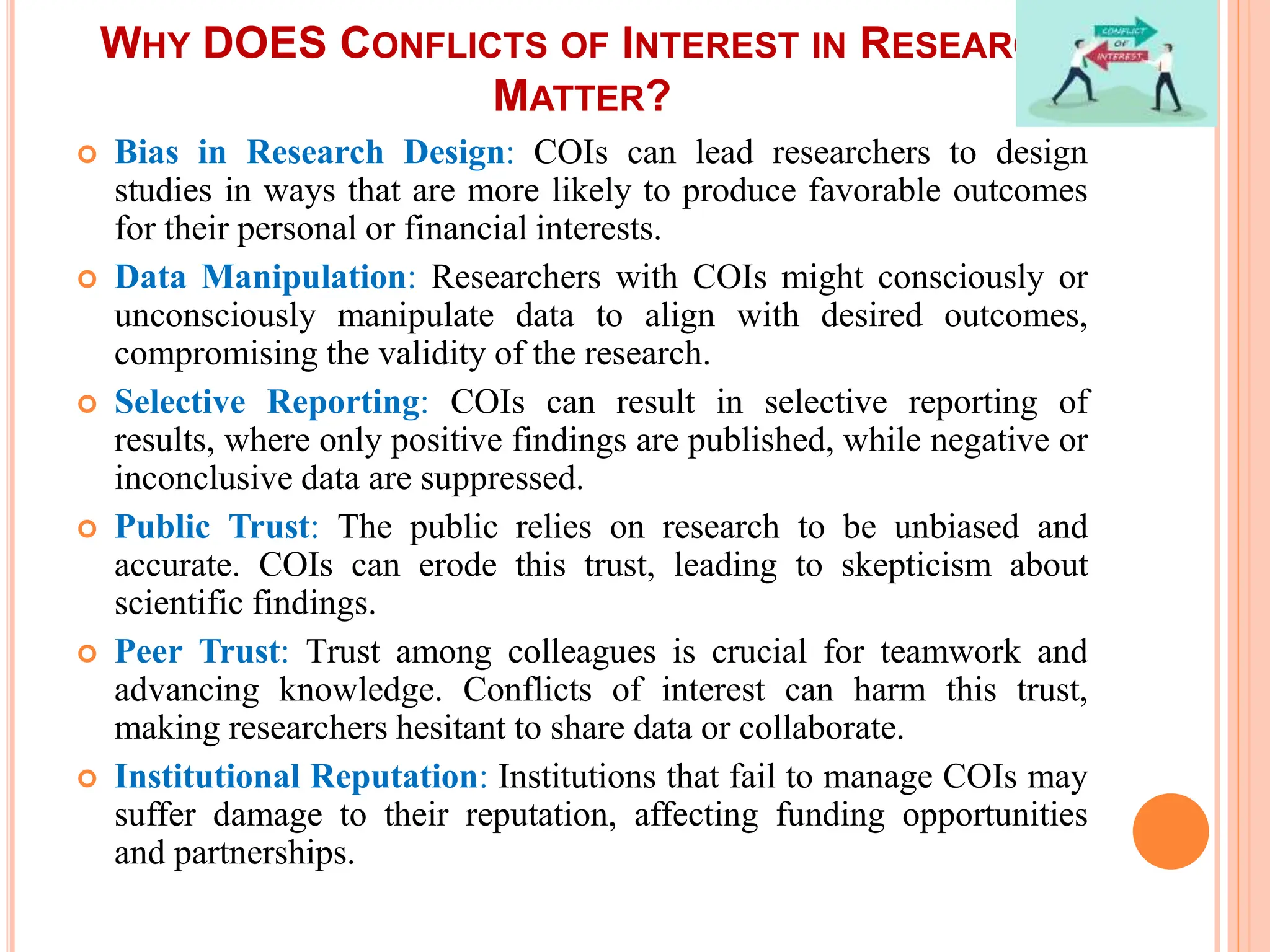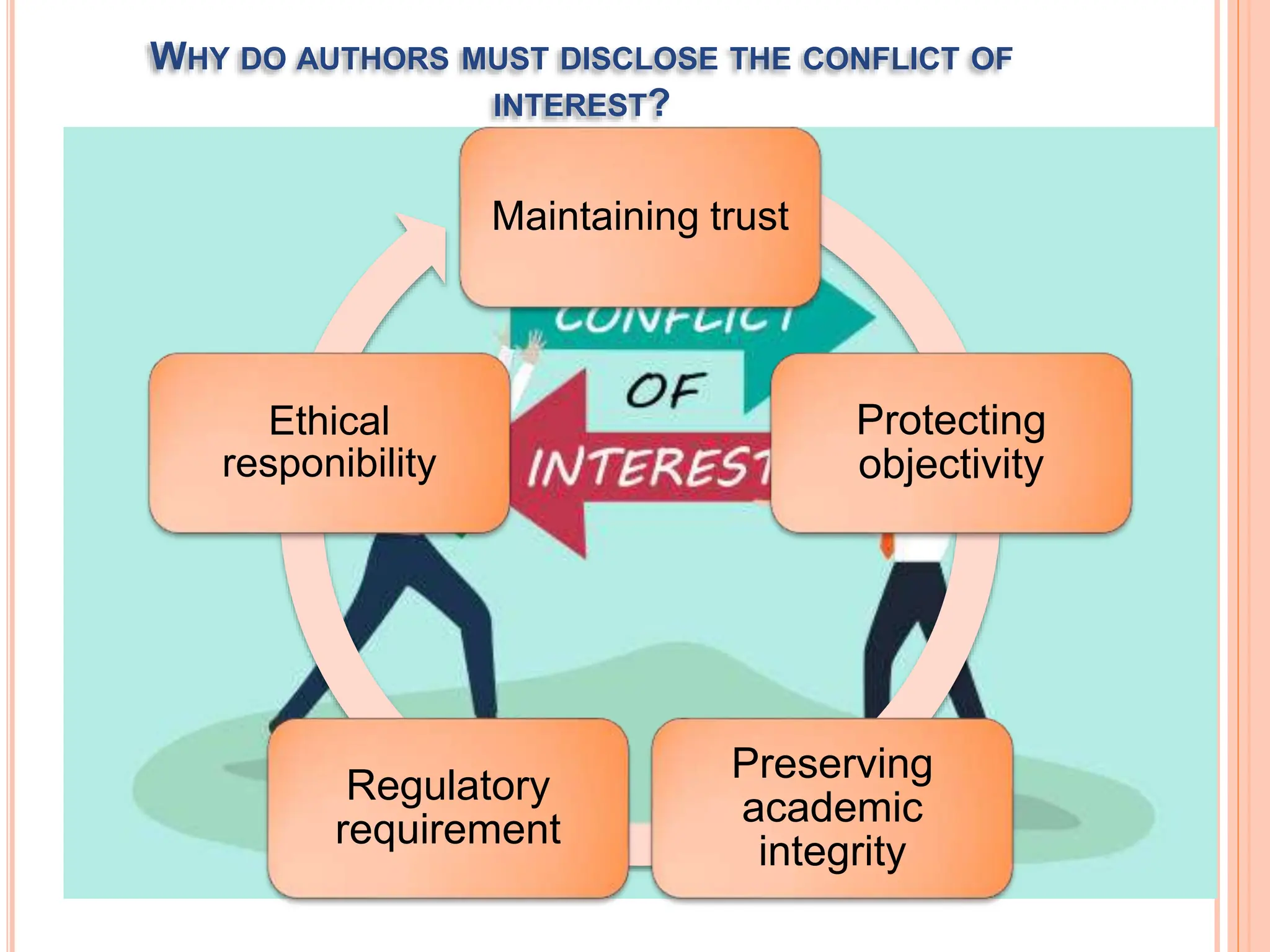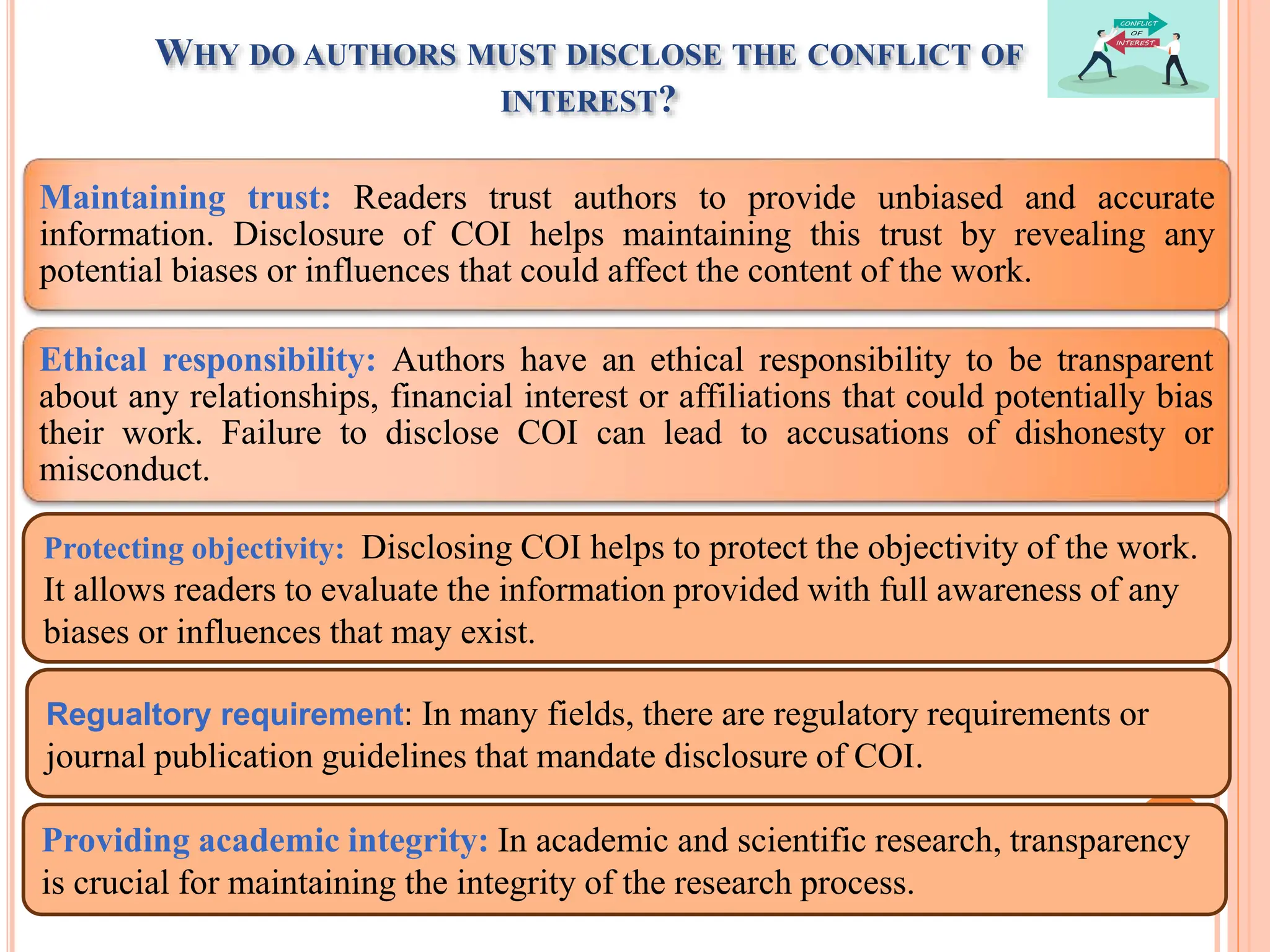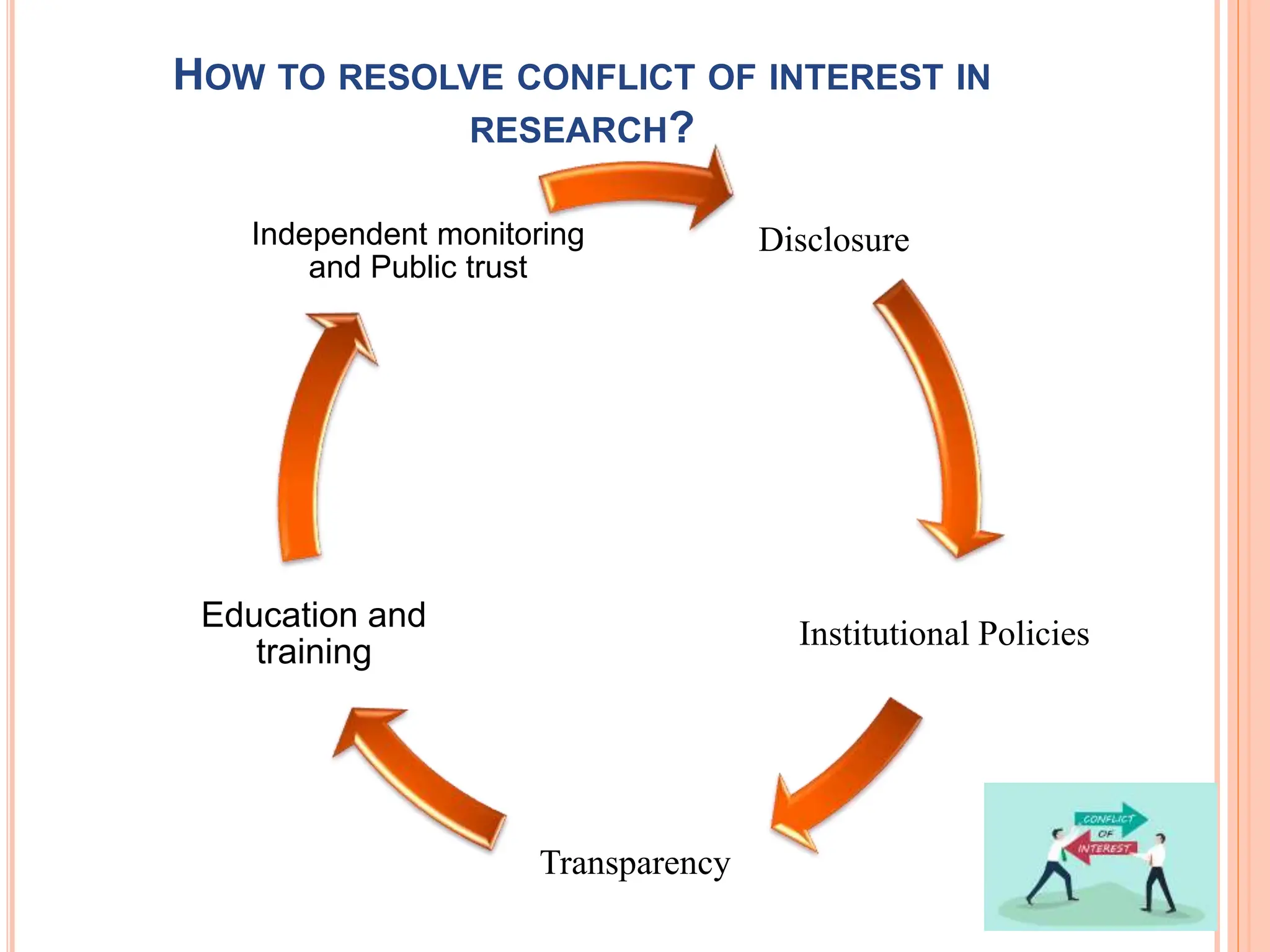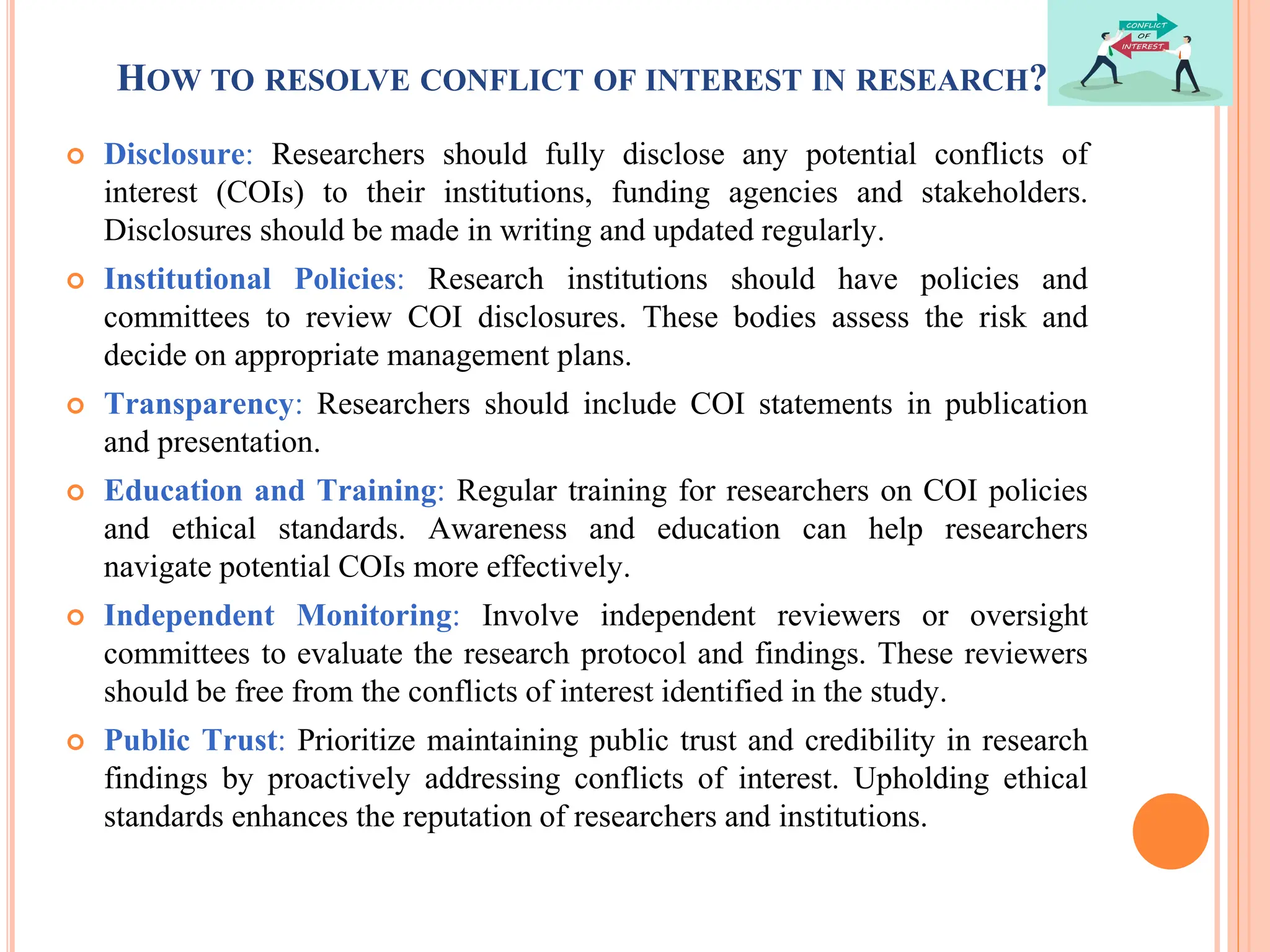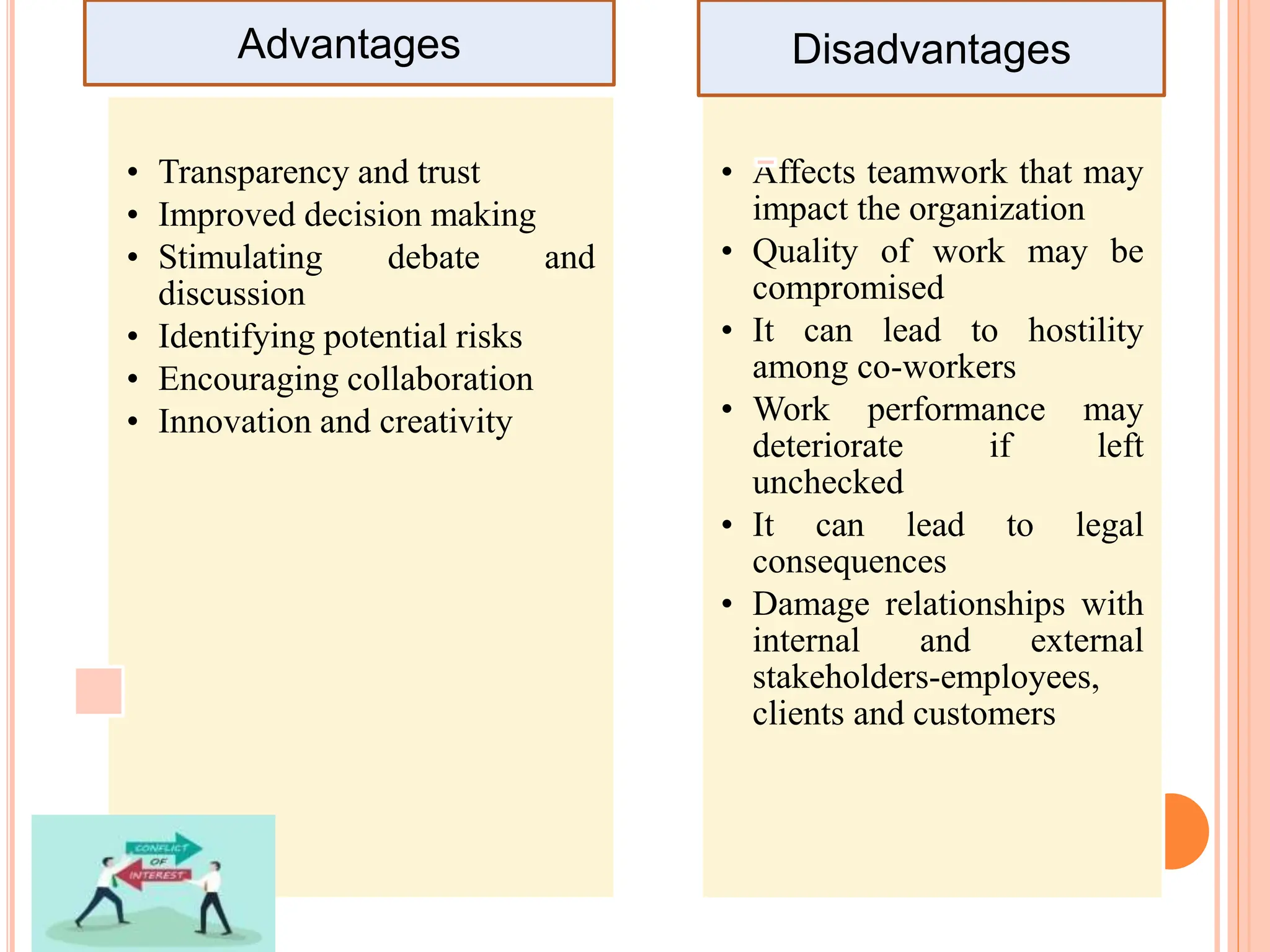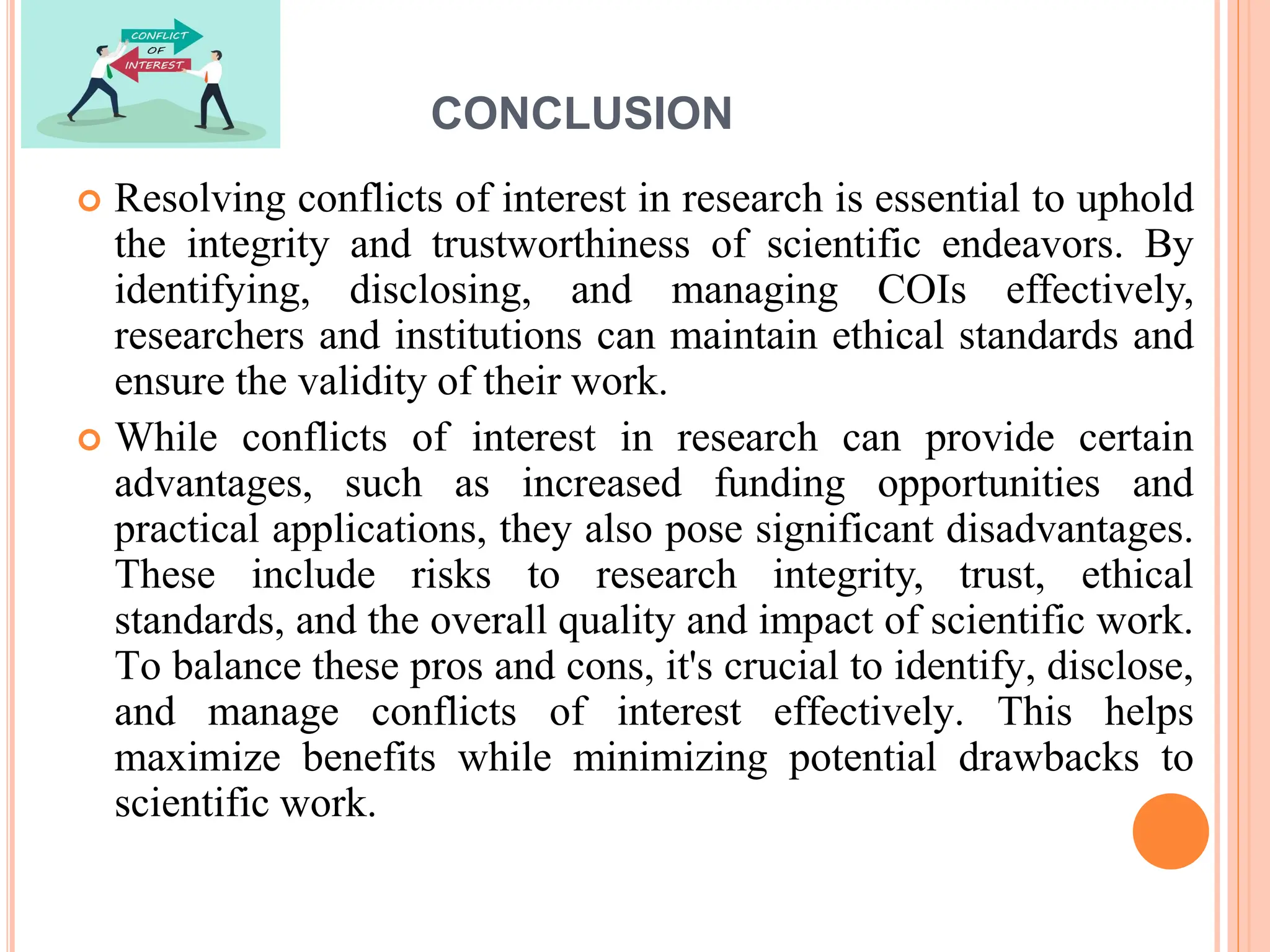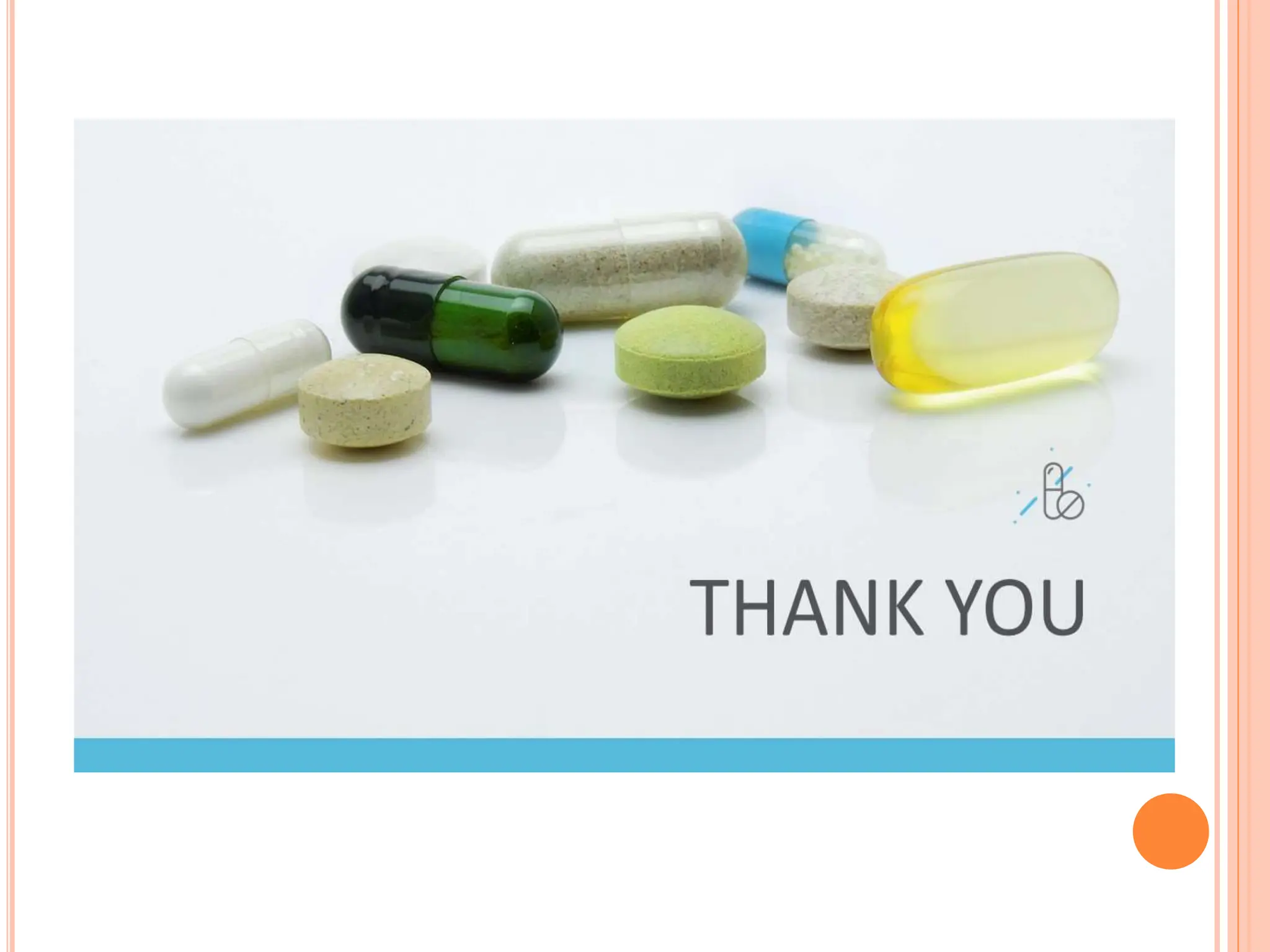Conflicts of interest (COIs) in research occur when an individual's interests might compromise the integrity of their research, potentially leading to bias and unethical behavior. Effective management of COIs is essential to maintain trust, objectivity, and academic integrity, requiring disclosure, institutional policies, and transparency. While COIs can offer benefits like increased funding and practical applications, they also pose significant risks to research validity and public trust.
